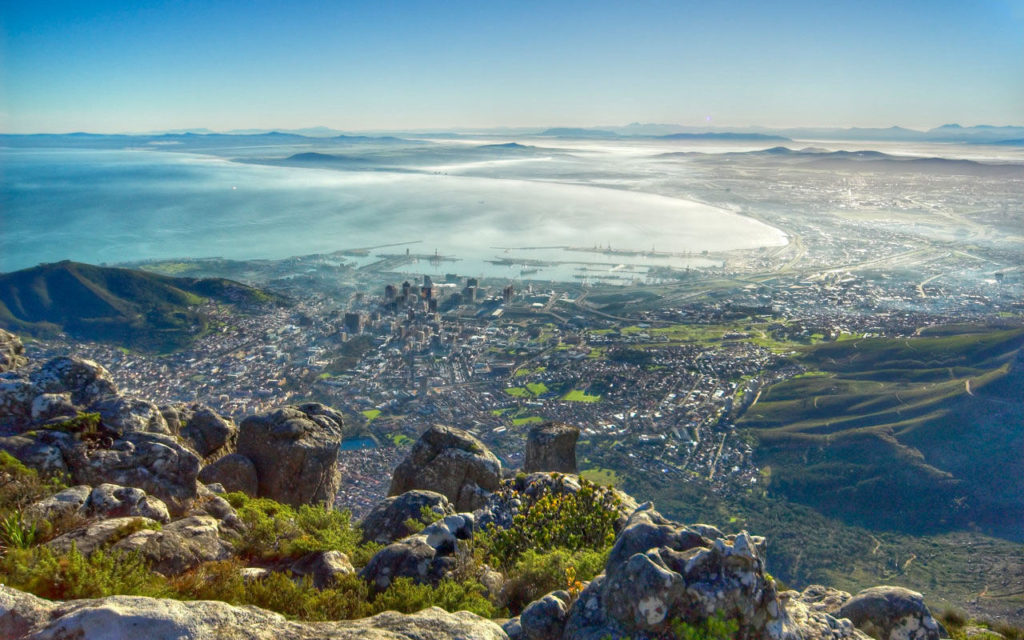The 5 largest powerhouses in the African Economy are Nigeria, South Africa, Egypt, Algeria, and Morocco. These economies feature various levels of diversification and growth. In 2016, they contributed well over 60% (62.24%) to the continent’s overall Gross Domestic Product.
Nigeria: The Largest African Economy
Nigeria overtook South Africa as the largest economy on the continent in 2011. While Nigeria was still holding the title of largest economy in Africa in 2015, the recorded average income per person (GDP Per Capita) in Nigeria is the smallest among the top 5. This has been the case historically as well, leading to question the structural integrity of Nigeria’s economy and its wealth distribution. Nigeria has for a long time been dependent on oil exports. Low oil prices in recent years have led to a decline in economic growth. To remedy the situation, the country’s government has been working to diversify its economy by growing manufacturing and other aspects of its private sector. However, the low GDP per Capita suggests that most Nigerians are not yet benefiting from the diversification effort. As such, more needs to be done to ensure better wealth creation and distribution.
South Africa: A Declining African Economy
South Africa’s economy has been declining since 2011, was still on its downward path in 2015. Historical data shows the steepest decline started from 2011, with decreasing consumption and savings. This hasn’t happened in the country for at least 23 years, and thus points to decreasing income and increasing unemployment in the South African economy. Most of South Africa’s economic issues steam from its government’s poor policy-making, political uncertainty, and high debt burden. Despite being the most industrialized nation on the continent, the poor leadership of South Africa’s government has been driving the country’s economy into the ground these past few years. In 2016, South Africa lost its Number 2 spot to Egypt.
Egypt: A Sluggish African Economy
In 2015, Egypt was the third largest economy in Africa. Though its GDP Per Capita is second to last, household consumption often rivals that of Nigerians and South Africans. This suggests that an increase income has been taking place in the country over the past 10 years. It also implies a decrease in unemployment and higher business growth. Despite the overall positive outlook, savings in the country has been on the lower end of the spectrum in the group. Moreover, Egypt’s growth has been slow in the past 5 years due to the uprisings that shook the country in 2011. The political instability in the following years also contributed to the decline in growth. The government has been implementing economic reforms in order to increase growth and boost investments. In 2016, the country replaced South Africa as the second largest African economy.
Algeria: An Unsteady African Economy
While Algeria’s overall production comes in 4th out of the 5 countries, average GDP per person is only second to South Africa’s. Average savings per individual is also one of the highest in the group. In that sense, Savings per Individual has been second only to Nigeria for the past 7 years. Algeria, like Nigeria, is largely dependent of oil. As such, declining oil prices hit the country’s economy. Most of the growth in the country is driven by public spending as the government has been slow, and at times unwilling to promote the growth and diversification of its private sectors. In order to tackle the looming budget deficit crisis and promote growth, the government has started cutting public spending. It is also planning to improve its stock market and introduce Islamic Finance in order to increase investments in the economic.
Morocco: A Diversified African Economy
Morocco is one of the least performing countries of the top 5 in terms of GDP, Household Consumption and Savings. However, in terms of Income per Person, it has been ahead of Egypt and Nigeria for almost two decades. Despite its lower GDP compared to the other 4 countries, Morocco is one of the most diversified and stable economies of the group. One of the drivers of the economy is Agriculture, which in turn is highly dependent on the level of rainfalls. High levels of rainfalls drove economic growth in 2016. The trend is expected to continue is 2017. Tourism is also an important sector of Morocco’s economy, contributing about 5% of total jobs in the country. Morocco is also one of the countries at the forefront of renewable energy on the continent.

